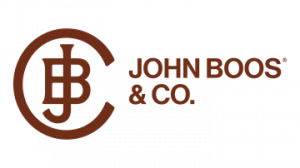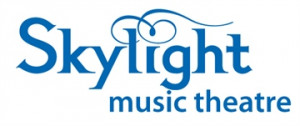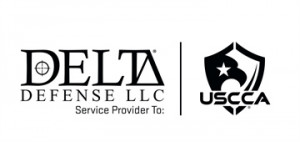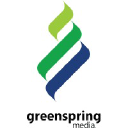For more than two decades, Heidi Fendos has quietly helped shape some of the most memorable moments in Milwaukee—from escorting the cast of Happy Days at the Bronze Fonz unveiling to managing high-profile events with the White House. As the founder of Fendos PR, she’s built her consultancy on adaptability, strong media relationships, and a tireless work ethic. In this Q+A, Heidi shares what inspired her to launch her own firm, how she navigates crisis communications, and why giving back to the next generation of PR professionals remains central to her mission.
You've been running Fendos PR for over 22 years. What inspired you to make the leap from agency life to starting your own consultancy?
I had always dreamed of having my own consulting business. After spending nine years in an agency setting, I gained a strong understanding of how to manage both my time and my clients effectively. I felt confident in my ability to deliver exceptional service and results. What truly motivated me, though, was the realization that the harder I worked, the more direct impact it would have—not just on my clients’ success, but on my own. That sense of ownership and possibility was incredibly inspiring.
Looking back at your agency days, what foundational skills did you develop that still serve you today?
Time management, without a doubt. Working in an agency taught me how to navigate media expectations and tight deadlines, respond quickly on social media, accurately estimate how long projects will take, and bill appropriately for my time. I learned how to efficiently juggle multiple clients throughout the day—switching gears quickly and staying organized under pressure. It’s a fast-paced balancing act, and it’s not for everyone. But I’ve thrived on this energy and urgency for over 22 years.
You've worked with the White House staff and managed media relations for President Bush's commencement speech at Concordia University. How do you prepare for such high-stakes events?
Nothing truly prepares you for the level of security involved in a White House event—you learn quickly that adaptability is key. The most important thing is to listen carefully to the Secret Service and White House staff, follow their recommendations precisely, and make it clear that you're there to support their efforts. Flexibility is essential, because plans can change at a moment’s notice. Full transparency is also critical—you need to communicate every detail of your promotional and media strategies. If they’re not comfortable with the direction you're taking, you must be ready to pivot immediately.
Your work on The Bronze Fonz unveiling generated worldwide media coverage. What made that campaign so successful, and how do you create that kind of viral moment?
Everyone loves Henry Winkler, and his popularity spans generations—from Happy Days to Arrested Development and many other projects—so there was immediate interest in the unveiling. Dave Fantle, who was with Visit Milwaukee at the time, was really the driving force behind this fun tourism initiative for Milwaukee. I just had the privilege of supporting his vision and helping bring the event to life.
That said, it remains my favorite event of my career. I grew up watching Happy Days, so getting to meet the cast, escort them around Milwaukee for the day, and help manage the media coverage was truly unforgettable. The combination of a beloved cultural icon, a smart local tourism strategy, and strong media relationships made it a perfect recipe for a viral moment.
Crisis management seems to be one of your specialties, including handling a shooting at in one of your client’s parking lots. What's your approach when a client faces a sensitive situation?
The key to handling any crisis situation is to have a plan in place prior to the emergency that can be a road map for moving forward when an event does happen. This plan needs to address how you will communicate with all of your target audiences including your employees, customers, the media, influencers and key stakeholders.
The next thing is to remain calm and organized recognizing that the news cycle moves quickly. The goal is to respond swiftly, thoughtfully, and transparently—helping clients navigate the situation with minimal damage to their business’s reputation. With the right response, even serious incidents can be managed in a way that allows the client to emerge with their credibility intact.
You completed social media certification in 2010 when social platforms were still emerging. How has the PR landscape changed since you started, and how do you stay ahead of trends?
The industry has COMPLETELY changed since I started. When I began my career we mailed news releases to newsrooms—literally printed copies in envelopes. That shifted to faxing, then emailing. Now with the rise of social media, we push our messaging directly to our targeted audiences often bypassing traditional media altogether.
Getting started in the industry, standing with Tracy Clementi who also worked at Sprecher Bertalot, Astronaut James Lovell and Kay Giese who was the marketing director at Discovery World. This was for the renaming of James Lovell Street, named for the Milwaukee-raised Apollo astronaut.
One constant throughout this evolution has been my commitment to staying ahead of trends. The Public Relations Society of America (PRSA.org) and its local chapter, PRSAwis.org have been my go-to resource for industry insights. Today, I continue to rely on PRSA to stay informed—especially as artificial intelligence is now reshaping our PR roles. I’m learning to embrace AI tools for enhancing my work—particularly in editing and idea generation.
You've worked across diverse industries - from hospitality and tourism to education and a variety of small businesses from shoes to root beer. How do you adapt your PR strategies for different sectors?
Adapting PR strategies across industries requires a deep understanding of both your clients’ unique values and the broader media landscape. One key approach is paying close attention to the time of year and staying on top of current trends. Crafting timely pitches—whether it's tying into Water Safety Month, National Root Beer Float Day, or back-to-school shoe shopping—helps your clients stay relevant and newsworthy.
Equally important is positioning clients as credible experts in their fields. When the media sees them as reliable go-to sources, it creates long-term opportunities for coverage.
Also being responsive to the media and their tight deadlines is critical. It helps you to build strong relationships with the media, which ultimately all of your clients benefit from.
American Idol Homecoming Day with Danny Gokey.
You've served as President of PRSA Southeastern Wisconsin and continue mentoring PRSSA students at UW-Whitewater. Why is giving back to the profession important to you?
I've been fortunate to have some incredible mentors throughout my career—people who took the time to guide, support, and challenge me. I truly wouldn't be where I am today without them. Giving back to the profession is my way of paying that forward. I also recognize that I won’t be in this business forever, and it’s important to help develop the next generation of PR professionals.
My husband Todd often says, “If you take the first step, someone will help you.” I’ve found that to be true, and I genuinely enjoy being that ‘someone’ for students—helping them navigate and understand our complex and ever-evolving industry.
What advice do you give young professionals just starting their PR careers, especially in today's fast-paced digital environment?
Never stop learning. Just when you think you've mastered something, the PR industry evolves. Stay flexible and open to new ideas. Enjoy the ride, it’s a fast-paced one but it is also a real adrenaline rush.
Looking ahead, what trends in PR and marketing are you most excited about, and how are you preparing your practice for the future?
AI is really changing how I brainstorm concepts, work through the editing process, and it is really increasing my overall efficiency. I love it. It’s a powerful complement to my creativity and strategy.
For someone considering starting their own PR consultancy, what would you say are the most important factors for success?
You need to understand the importance of networking. When I started Fendos PR, I was fortunate to have a strong network of former colleagues from my agency days, fellow PRSA members, and past clients. I made sure to let them know about my new venture, which made a tremendous difference in getting my business off the ground. Networking has truly been critical to building and sustaining Fendos PR for 22 years.

















